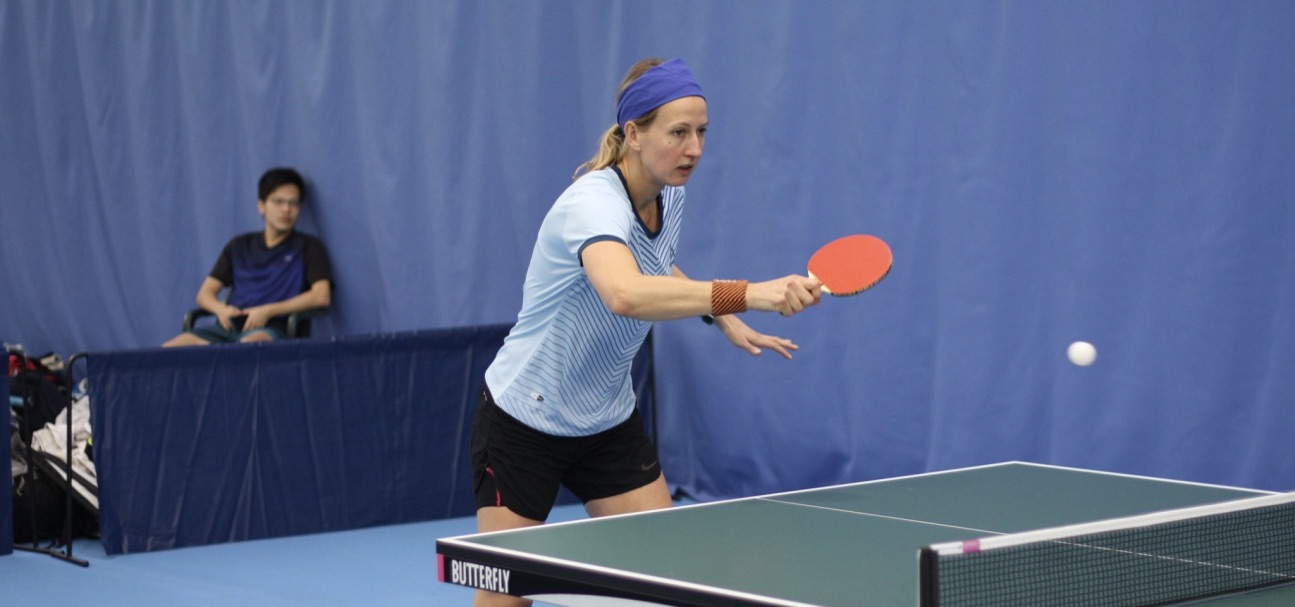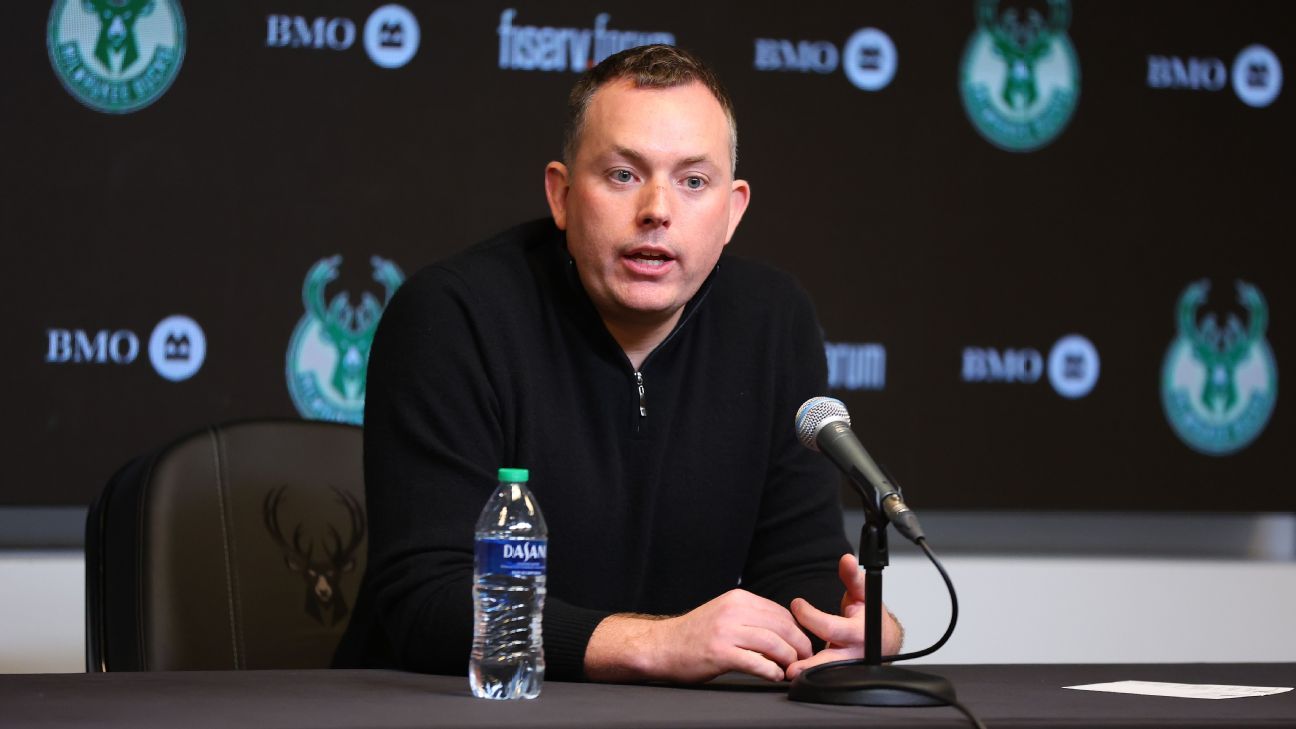
New balls, please: Alison Waters is a fast learner in the table tennis during the London Open Racketlon event
Racketlon growing in popularity with Olympic aspirations
By GORDON KERR – Squash Mad Correspondent
Racketlon combines the four ‘biggest’ racket sports in the world: Table Tennis, Badminton, Squash and Tennis. Administered by the Federation of International Racketlon (FIR), this amateur portmanteau sport is well organised and campaigning confidently for Olympic inclusion.
The four sports are played in ascending order of racket weight/head size. A hybrid scoring system applies to each; one game to 21 points but the winner must be two points clear. Serve oscillates every two points and the players change ends (except in squash where they just take a breather) when the leading player reaches 11 points. Close matches last approximately one hour.
There is a pan-European tournament circuit, and the London Open event was held last weekend at the sumptuous Roehampton Club, formerly better known as a polo club frequented by statesmen such as Lloyd George and Winston Churchill.
Two personal friends were playing. A brief explanation. Having retired from serious amateur Real Tennis competitions in 2000, I returned to squash at Southgate.
The committee asked me to play for the club’s third team in order to keep a watchful eye – particularly at away matches – on a promising 16-year-old, Alison Waters. They were worried that overly competitive adult male players would try and knock her off the ball.
Far from being miffed at playing ‘down’ in the thirds, I thoroughly enjoyed the season and managed to engineer most of the schedules such that we did not play simultaneously; I therefore watched most of Alison’s matches.
The committee needn’t have worried; she was already such a deft mover that the one or two ignorant opponents she came across failed to unsettle her; she nimbly stepped away from every potential collision. There were hardly any let calls in her entire season.
At the end of the season the good news came through that she had been selected to join the elite England set-up under the then Squash Rackets Association. We started playing and training together on Saturdays.
Fourteen years later, having switched clubs to Oakleigh Park, I started playing regularly with another promising junior, David Bennett. David, today just 17 years old, is ranked in the top ten juniors in the world at Racketlon, having won two European Under-16 junior team titles representing Great Britain. When I learned that both David and Alison were playing at Roehampton on Saturday, I willingly tore up my Ashes cricket ticket and went to watch.
I was not to be disappointed. David had entered both the Under-21 event and the Advanced Men’s B category. His first opponent was an experienced Swiss, Beat Ladner, who confided to me in the warm-up that David had last year beaten his son in a different junior event, so he was out to restore family pride.
The table tennis was nip and tuck, but Ladner edged it 22-20. At badminton, David’s agility and reflexes were too much for the slower Swiss gentleman, 21- 14. Next was squash, and I am personally acutely aware of how good David has become.
He is so mobile that I feel I have to win each point about three times. The intelligent Ladner employed the sensible tactic of going for outrageous winners, and did well to score five points; one or two were flukes off the frame. Tennis was, however, a mere formality; David quickly secured the single point he needed.
Alison was next. She had drawn Racketlon’s world ranked number two, Zuzanna Severinova of the Czech Republic.
In our brief warm-up chat, Alison revealed that she had been surprised the previous day by the quality of table tennis play. Partnering Roehampton squash pro Paul Lindsay, they were frequently foxed by the degree and direction of spin.
A modest crowd watched as Alison showed what a quick learner she was, dealing well with the attacking play of Severinova and counter-attacking herself. Alison actually had three game balls before going down 23-25.
The badminton was a legitimate high-class ladies’ match at which Severinova’s greater experience was matched by Alison’s reaction speed and athletic lunging, notably catching the 21-year-old Czech with measured counter-drops off wonderful low retrievals at the front.
Next was the squash. 21-0 to Alison. What a brutal and perfect sport squash is, where winning a single point is a major success for the weaker player if there is a marked distinction in playing standard. And squash is the only non-Olympic sport of the four! Such was her lead that Alison needed only five points at tennis to pull off a remarkable upset.
I was not there on the Sunday, but the well organised FIR published this report.
In summary, Alison reached the final after a narrow win over Kim Hay, where she lost to the impressive German, Amke Fischer.
David Bennett, encouraged throughout by his mother Joanna, (herself a good squash player, in fact a former Middlesex County Under-16 team mate of Alison), reached the finals of both events, losing to the top seed Luke Griffiths in the Under-21 event, and to Matthew Davidson in the Men’s B competition.
Pictures courtesy of Gordon Kerr and UK Racketlon















 Phone: (800) 737. 6040
Phone: (800) 737. 6040 Fax: (800) 825 5558
Fax: (800) 825 5558 Website:
Website:  Email:
Email: 






